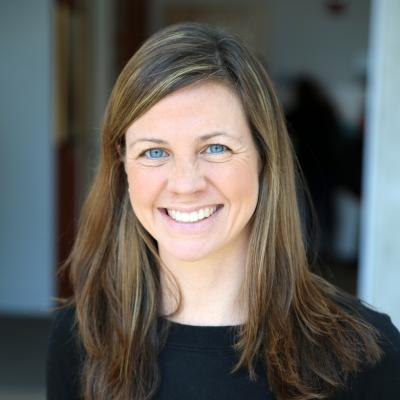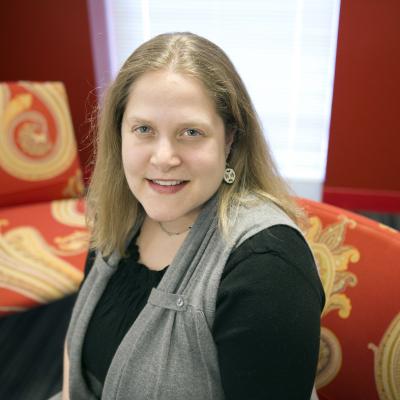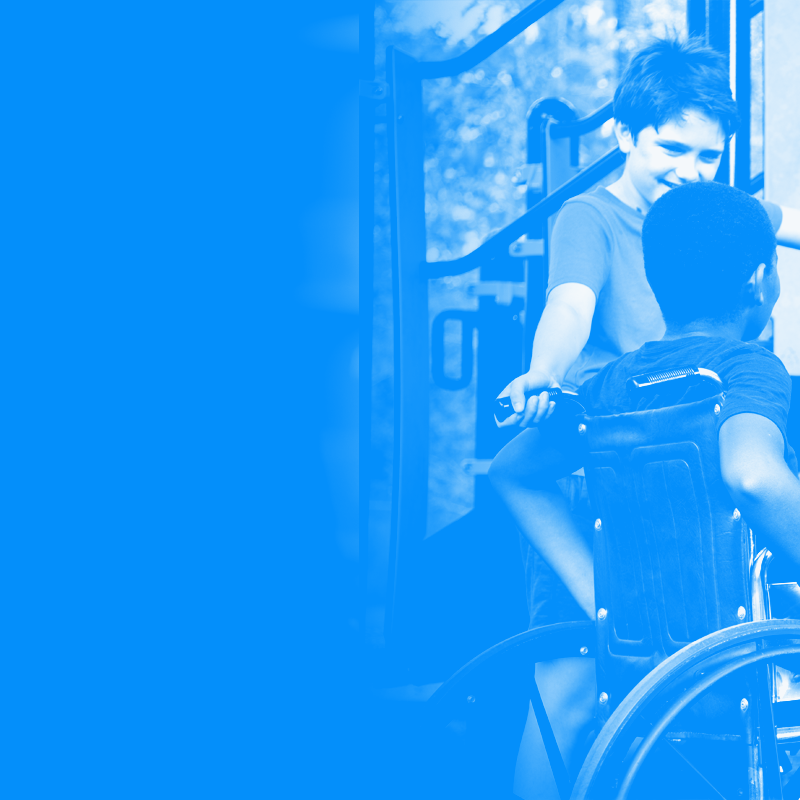"You can count the seeds in an apple, but you can't count the apples in a seed"
World Children’s Day is a reminder of not only the awe-inspiring promise of our children that fuels me every day as a mother, child advocate, and researcher, but also of the enormous untapped potential of our children, due to unequal and unfair conditions that so many children face in the U.S. and around the world, often starting before they are even born. We are making the choice, as a human community, through our policies, not to tap and unleash the full potential of all of our children.
There are more than enough resources on this planet to help every child reach her full developmental potential, and this drives the sense of responsibility I feel to work for change every day of my life. World Children’s Day is a time to re-commit to ensuring that all children have the right (not just the privilege) to access the opportunities they need to achieve their own full potential. As an early childhood equity researcher, I see the promise of investing in our children early, and know that we have the know-how and resources to give every child on this planet a strong start. But I am also acutely aware that our current early childhood policies, in the U.S. and around the world, are a long way from accomplishing that. While we are moving in a positive direction, progress is too slow, meaning that without radical changes, and unprecedented investment and commitment to this ideal, we are on track to leave another full generation of untapped potential on the table.
My 11 year old daughter told me today, “All children, everywhere, should have the right to reach their full potential, NO MATTER WHAT. It’s that simple.” I agree with her, and I will continue to work as part of our global community of activists, analysts, advocates and allies to create more apples than we could ever count.
--Erin Hardy
Making the Convention on the Rights of the Child a reality, especially for our most marginalized and vulnerable kids and families, draws me to work focused in early childhood. Thanks to my personal experiences, I am particularly tuned into families with children with complex needs.
My micro preemie twins were born at 28 weeks, 5 days after I spent 2 ½ nail-biting weeks on hospital bedrest. Once they arrived, we rolled through NICUs, PICUs, surgical suites, endless specialists, and a work/home juggle that has only been rivaled by the COVID19-era. I had a rather typical multiples pregnancy prior to this incredibly terrifying turn of events. And, we did eventually get to leave the hospital with both of our babies, after 72 and 90 days in separate NICUs. Incredible medical advances, extraordinary care teams and sheer luck made this possible.
Today, I marvel at the 8-year-olds they are. I also marvel at the extraordinary work—with all its frustration and reward—that it is has taken us to get here, work that continues every day.
After all, I am a public health expert who focuses on child equity, health literacy and systems. Despite every conceivable personal and professional advantage, I struggle daily with navigating health, school and other systems to get my kids what they need, let alone what we want them to have.
I live daily examples of the absurdity of systems navigation for kids with complex needs.
- A phone call from the pediatrician’s office checking on a medication we’ve been dealing with across specialists. She repeatedly uses a name I am not familiar with and only when I question it do we realize we’re talking about the same medication by a different name.
- A jungle of reminders to follow-up on requested appointments and testing, which can only be made when calendars open or specialists offices’ can be reached. I never receive the call I’m told will come to coordinate visits and exams across specialists. All bets are off when coordinating across institutions.
- A conversation with the cardiologist explaining the results of an EKG that are not “normal.” Despite my questions, I do not understand what she is saying and am so frustrated I am crying.
- A thick envelope of paperwork arrives to the house. It has nothing to do with my children’s situation but, it turns out, is necessary to complete. I only figure this out by calling a child disability hotline. They explain that I should fill it out no matter how illogical it seems, or I will lose relevant services we’re already receiving. I stop trying to make sense of it, take their advice, and send it back completed…. They were right.
And in it all, I possess excellent literacy skills, more than sufficient financial resources, and proximity to excellent services.
I do not experience slights, frustrations, and limited access because of my race or my child’s race, or who my partner is. I am a White person living in a White supremacist U.S. culture, which permeates every aspect of our lives in ways we can name, and mostly in ways we cannot. As such, I do not personally: question whether differential treatment is based on race or sexual identity; experience COVID19 as targeting me personally because I am part of a population with inequitably dire outcomes; or know the insidiousness of being barraged by micro-aggression assaults.
And still, the experience of having and raising former micro preemies with complex needs has forever changed my professional and personal lives, my health, and my world view.
I am so very tired of hearing that families just need family navigators or just need to follow through on referrals. Where is the acknowledgement that the need for family navigators is largely a result of how screwed up our systems are, so much so that even people with advanced training in public health cannot adequately navigate them alone? Many times, partnership in navigation is needed and important. Yet, often, simply suggesting family navigators obscures the systems issues.
Creative solutions are born of collaborative work informed by professional and lived expertise. We need to work toward the rights set out in the Convention by authentically advocating for and creating opportunities for partnership with expert stakeholders of all kinds, focusing on the role of systems in creating real-world solutions. Families need to be part of the work to design, adapt, evaluate and re-design proposed research, programs and policies, from the start.
It is not enough to invite us as token members in our own or population-level planning and action. Centering lived experience means diligent and faithful steps toward incorporating as many family voices as possible. The systems that work with children with complex needs and their families will continue to fall short until centering families’ lived experiences becomes the norm. Only then can we begin to fulfill the rights outlined in the Convention on the Rights of the Child.
--Lindsay Rosenfeld




